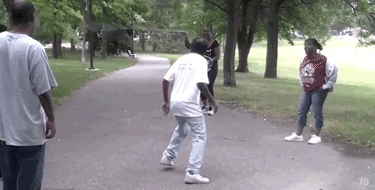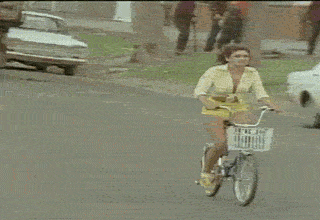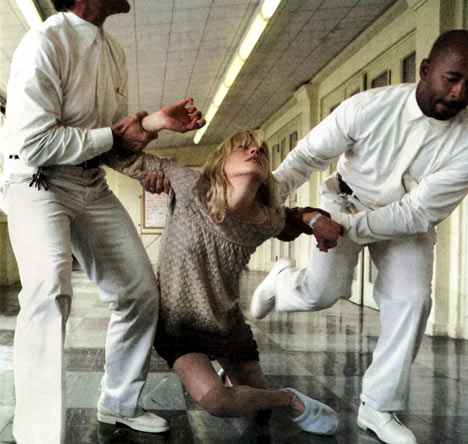 One of the coaches in my district approached me last week and asked if I had a moment to talk about a few students. Each of them had come pretty close to passing my class but had fallen short largely due to things entirely within their control – not turning in study guides for easy points, not participating in review sessions, etc.
One of the coaches in my district approached me last week and asked if I had a moment to talk about a few students. Each of them had come pretty close to passing my class but had fallen short largely due to things entirely within their control – not turning in study guides for easy points, not participating in review sessions, etc.
While my interactions with this particular coach had always been friendly enough, we don’t really know each other all that well. He was clearly concerned about how he came across, repeatedly reassuring me that he wasn’t asking me to do anything I didn’t think was appropriate. Once we got past the pleasantries and multiple disclaimers, his basic question was this: would I be willing to revisit these students’ grades and see if there was some “wiggle room”… if maybe they might be made eligible to play ball next year?
I can hear some of your reactions even as I type. How dare he! That’s what’s wrong with high school athletics! How will these kids ever learn responsibility with these sorts of people enabling them?!? The gall! The moxie! The fruvous! And I get it – that’s probably how I would have reacted only a few short years ago.
Three things stopped me from immediately saying no.
 The first was how graciously he approached the issue. He wanted to make sure there was nothing suggesting pressure from him or anyone else to do anything I might be uncomfortable with or consider unethical – and I think he meant it. These kids weren’t athletic superstars or anything. I teach freshmen, and while they may have potential, none of them are critical to the success of anything happening on a track, field, or court next year. In his mind, it was about what being involved and playing sports MIGHT do for them overall – including, but not limited to, academically.
The first was how graciously he approached the issue. He wanted to make sure there was nothing suggesting pressure from him or anyone else to do anything I might be uncomfortable with or consider unethical – and I think he meant it. These kids weren’t athletic superstars or anything. I teach freshmen, and while they may have potential, none of them are critical to the success of anything happening on a track, field, or court next year. In his mind, it was about what being involved and playing sports MIGHT do for them overall – including, but not limited to, academically.
He was genuinely interested in listening to and answering my questions and hearing my thoughts on the issue beyond “yes” or “no.” Once I understood what he was asking me, I think I said something like, “So… I guess what this comes down to is what has the best chance of being good for these kids. Is it the tough lesson of failure and natural consequences thereof? Or is it the potential learning experience that occurs when part of a team struggling together to get better?” That’s the point at which he relaxed. Even if I said no to some or all of them, he seemed relieved that we at least shared a basic conception of the issue.
 The second reason I considered his question is that the kids in question are genuinely good kids, at least most of the time. They’ve each shown flashes of far more ability than their grades would suggest. I know something of their hopes and visions for their futures, and while ambitious, they’re all certainly plausible. (None of them are counting on the NBA or YouTube stardom to get them through adulthood.) These weren’t kids with a 12% or a history of serious discipline problems; they just didn’t always show the focus or determination one might hope.
The second reason I considered his question is that the kids in question are genuinely good kids, at least most of the time. They’ve each shown flashes of far more ability than their grades would suggest. I know something of their hopes and visions for their futures, and while ambitious, they’re all certainly plausible. (None of them are counting on the NBA or YouTube stardom to get them through adulthood.) These weren’t kids with a 12% or a history of serious discipline problems; they just didn’t always show the focus or determination one might hope.
These were also kids who might have made better academic choices if they had a bit more of a foundation of good decision-making on which to build. There’s nothing stopping them from being that success story who prevails against the odds, but not everyone lives on the front end of the Bell Curve. Some kids respond to their circumstances by fitting into their circumstances. Maybe they could use a different sort of nudge.
 Finally, there was my stubborn belief in the power of extracurriculars in kids’ lives. I’ve had the honor of working closely with too many coaches to buy into most stereotypes of their priorities or abilities. Sure, there are some bozos – but that’s true of any position in public education. Thankfully, those are generally the exception rather than the rule. Educators sign up to coach for the same reason others sign up to teach English or AP Calculus – they want to help kids.
Finally, there was my stubborn belief in the power of extracurriculars in kids’ lives. I’ve had the honor of working closely with too many coaches to buy into most stereotypes of their priorities or abilities. Sure, there are some bozos – but that’s true of any position in public education. Thankfully, those are generally the exception rather than the rule. Educators sign up to coach for the same reason others sign up to teach English or AP Calculus – they want to help kids.
The district I was in for many years in Oklahoma had a massive athletic program, a huge marching band, a semi-professional drama team, and so on. There were certainly a few times I could have lived with fewer pep assemblies or some more balanced scheduling. For the most part, however, one thing was all but certain about students involved in extracurriculars: they passed their classes and they graduated.
I can’t guarantee they always loved learning in all its forms, but they cared very much about grades and doing well academically. Some of this was about eligibility, but it was also about the culture of being involved. It was a positive sort of peer pressure – a “be true to your school” kinda vibe. I don’t want to oversell it; there were still problems here and there. Overall, though, I’d rather push for kids to get involved in SOMETHING than hope they’ll spend an extra hour a night doing homework instead.
If that were even a real dichotomy, I mean.
 So the question before me was one of probabilities and teacher philosophy. Coach was quite transparent about the fact that he couldn’t guarantee anything either way. While he hoped he’d be able to work with these kids as they continued through high school, there was no certainty they’d stay on the team. Playing or not, there was no way to know if they’d take advantage of the extra support and improve academically going forward. It’s possible I might nudge their grades up a few percentage points and all I’d be doing was feeding their delusions about how school works.
So the question before me was one of probabilities and teacher philosophy. Coach was quite transparent about the fact that he couldn’t guarantee anything either way. While he hoped he’d be able to work with these kids as they continued through high school, there was no certainty they’d stay on the team. Playing or not, there was no way to know if they’d take advantage of the extra support and improve academically going forward. It’s possible I might nudge their grades up a few percentage points and all I’d be doing was feeding their delusions about how school works.
On the other hand, I could hold the line and they’d fail a required class, rendering them ineligible to play. I’ve had students for whom that would be a painful but powerful lesson – pulling a 58% in a class they could have easily passed, then taking the natural consequences. It’s just that I’m not sure these are those students.
That sort of resilience requires a support system, or at least some personal experience with overcoming obstacles or riding out the storm or whatever. One of the most difficult things about working with kids from marginalized backgrounds is that they haven’t all developed much resilience because they haven’t experienced true “winning” very often – if ever. One of the biggest struggles my district faces is getting kids to come to school in the first place, especially if they’re not passing anything.
Failure can be a powerful teacher. I believe in the positives of failure. But it doesn’t work the same way or mean the same thing to everyone. Sometimes it’s just one more failure.
 There was one other reality to consider. While there’s no doubt in my mind any of these kids could have passed my class with a little more effort, the true difference between a 57% and a 61% is painfully subjective and impacted by any number of factors. I’d love to tell you that my English instruction and assessment is so data-driven and pedagogically holy that every tenth of a percentage point reflects a very specific level of skills and knowledge in each student, but in reality most of it’s just a matter of showing up, turning in work, and being receptive to teacher suggestions so that next week’s writing is a bit better than last week’s.
There was one other reality to consider. While there’s no doubt in my mind any of these kids could have passed my class with a little more effort, the true difference between a 57% and a 61% is painfully subjective and impacted by any number of factors. I’d love to tell you that my English instruction and assessment is so data-driven and pedagogically holy that every tenth of a percentage point reflects a very specific level of skills and knowledge in each student, but in reality most of it’s just a matter of showing up, turning in work, and being receptive to teacher suggestions so that next week’s writing is a bit better than last week’s.
English matters. Grammar and effective communication and close reading are all important, not just in academic contexts, but in life and in many professions and in terms of personal fulfillment. Then again, teamwork also matters. Learning the importance of individual effort while remaining part of a group matters. Persevering and struggling to get better at something matters. The thrill of victory and the agony of flying off that ski slope week after week matter. The unique relationships kids have with coaches which are never quite the same as they have with other teachers – those especially matter.
So what would be best for these specific kids? What would have the greatest chance of setting them up for success – not just next year, but in years to come? What’s the ethical thing to do? The professional thing to do? The right thing to do?
If the answer seems obvious, I respectfully suggest you’re missing something.
 If I do it, I told my colleague, the students would have to be fully informed of the decision (as opposed to thinking they’d somehow “slid by” at the last minute). This isn’t about wanting credit for the decision (I’m not sure enough of myself to feel too pious about it). It’s about wanting them to understand the reasoning behind it and the opportunity they have to take advantage of the moment. “There are adults in this building who believe you have better things in you than what you’ve shown so far and who want to give you the chance to express them. We’re trying to open the door a bit; what you do with it is up to you.”
If I do it, I told my colleague, the students would have to be fully informed of the decision (as opposed to thinking they’d somehow “slid by” at the last minute). This isn’t about wanting credit for the decision (I’m not sure enough of myself to feel too pious about it). It’s about wanting them to understand the reasoning behind it and the opportunity they have to take advantage of the moment. “There are adults in this building who believe you have better things in you than what you’ve shown so far and who want to give you the chance to express them. We’re trying to open the door a bit; what you do with it is up to you.”
Apparently this was already part of his approach. Go figure.
I don’t like different rules for different kids, even if it means opportunity for some of them. On the other hand, if I’m going to be wrong, I’d rather it be because I was too hopeful – too optimistic about the possibilities.
I chose the lady over the tiger this time. I nudged the grades up a few points. I’m comfortable with the decision, but not overly so – certainly not enough to insist it’s what anyone else should do. I hope they make the most of it.

 I’m not sure I want my students to succeed.
I’m not sure I want my students to succeed.







 On April 27th, 2014, the Dallas Stars were only a few game minutes away from an improbable 4-2 home victory over the conference-leading Anaheim Ducks. It had been a storybook game with glorious hits, highlight reel scoring, and the sort of scrap and grit that made the Stars (rather than their opponents) the Disney-movie-ready heroes – IF they could tie up this best-of-seven series and force their way back to Anaheim for a final brouhaha.
On April 27th, 2014, the Dallas Stars were only a few game minutes away from an improbable 4-2 home victory over the conference-leading Anaheim Ducks. It had been a storybook game with glorious hits, highlight reel scoring, and the sort of scrap and grit that made the Stars (rather than their opponents) the Disney-movie-ready heroes – IF they could tie up this best-of-seven series and force their way back to Anaheim for a final brouhaha. By what should one measure success in professional hockey? It’s so relative, and it matters deeply where you started, what adversities you’ve faced, how much support you’ve had, how much talent you have to work with, Finances matter, and sometimes there’s a fair amount of luck involved.
By what should one measure success in professional hockey? It’s so relative, and it matters deeply where you started, what adversities you’ve faced, how much support you’ve had, how much talent you have to work with, Finances matter, and sometimes there’s a fair amount of luck involved. I’ll go back to my hockey analogy, mostly because it’s easier to find supporting visuals that way. How do we measure success in a specific game? Not just for the team, but for the individual stu– er… players? What do we measure and thus value in hockey?
I’ll go back to my hockey analogy, mostly because it’s easier to find supporting visuals that way. How do we measure success in a specific game? Not just for the team, but for the individual stu– er… players? What do we measure and thus value in hockey? But the other team is trying to score also. Huh. OK, OK… if you’re on the ice when your team scores a goal, that’s +1 for you. If you’re on the ice when the other team scores on you, that’s -1. Keep a running total, and it’s clear: the higher your +/-, the better player you are. So, like, Sidney Crosby finished the season at +18. That’s pretty good. Down from +26 last season, but there were other factors, because –
But the other team is trying to score also. Huh. OK, OK… if you’re on the ice when your team scores a goal, that’s +1 for you. If you’re on the ice when the other team scores on you, that’s -1. Keep a running total, and it’s clear: the higher your +/-, the better player you are. So, like, Sidney Crosby finished the season at +18. That’s pretty good. Down from +26 last season, but there were other factors, because – Wait – that can’t be right. Alex Ovechkin is one of the best-known and most valuable players in the league. Is that a typo? And Seth Jones – he’s going to be great. Young kid out of Dallas, playing for Nashville – I mean, what he DID this year for his age and background!
Wait – that can’t be right. Alex Ovechkin is one of the best-known and most valuable players in the league. Is that a typo? And Seth Jones – he’s going to be great. Young kid out of Dallas, playing for Nashville – I mean, what he DID this year for his age and background! You have a goalie with a great save percentage. That’s awesome – that is, in fact, their primary job. How many games is that percentage based on? In what circumstances did he play? He may be on a team that could pretty much leave their net empty and have no worries because their defensive play is so strong. On the other end of the ice, though, is a goalie working miracles but losing games because the team sucks. So save percentage is an important number, but not nearly as simple as it first appears.
You have a goalie with a great save percentage. That’s awesome – that is, in fact, their primary job. How many games is that percentage based on? In what circumstances did he play? He may be on a team that could pretty much leave their net empty and have no worries because their defensive play is so strong. On the other end of the ice, though, is a goalie working miracles but losing games because the team sucks. So save percentage is an important number, but not nearly as simple as it first appears.
 I believe it was Winston Churchill who said that our current grading system is the worst one there is except for all of the other systems that have been tried (I might have the details a little fuzzy). The thing is, we haven’t really tried that many others. And yes, I realize as soon as we open that door, there are huge arguments to be had about what we should measure and how and yada yada yada.
I believe it was Winston Churchill who said that our current grading system is the worst one there is except for all of the other systems that have been tried (I might have the details a little fuzzy). The thing is, we haven’t really tried that many others. And yes, I realize as soon as we open that door, there are huge arguments to be had about what we should measure and how and yada yada yada. 